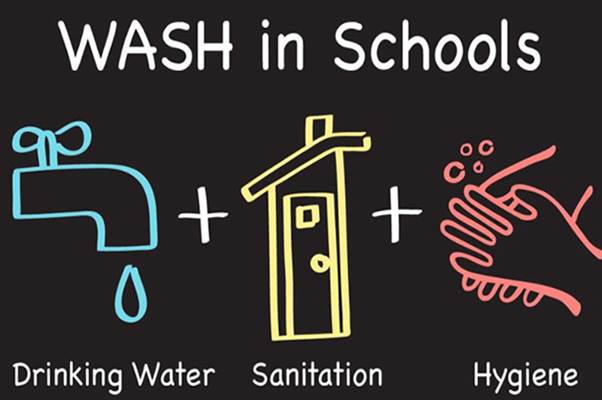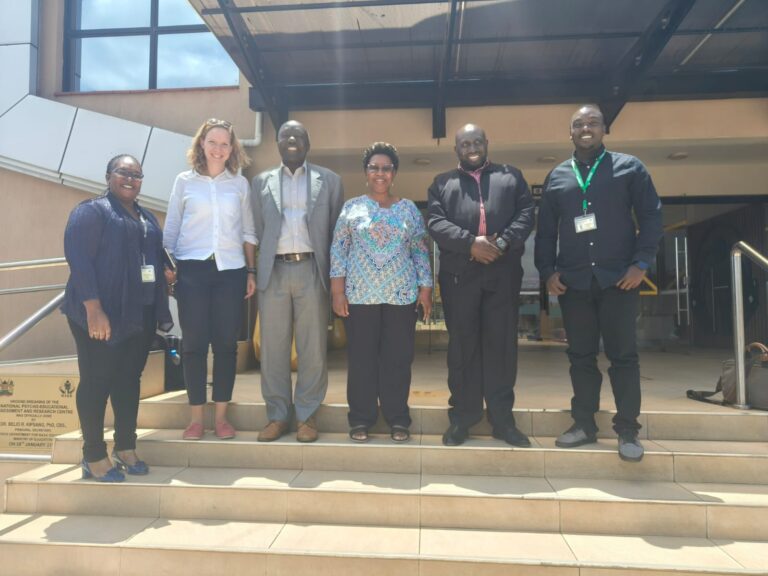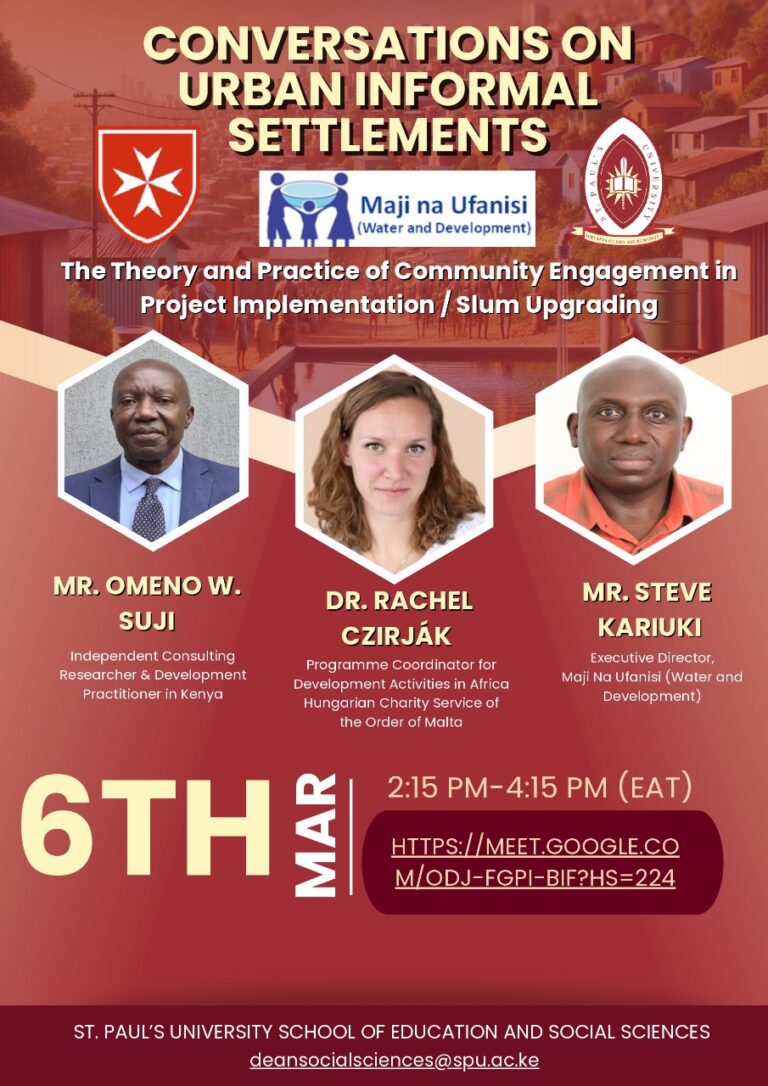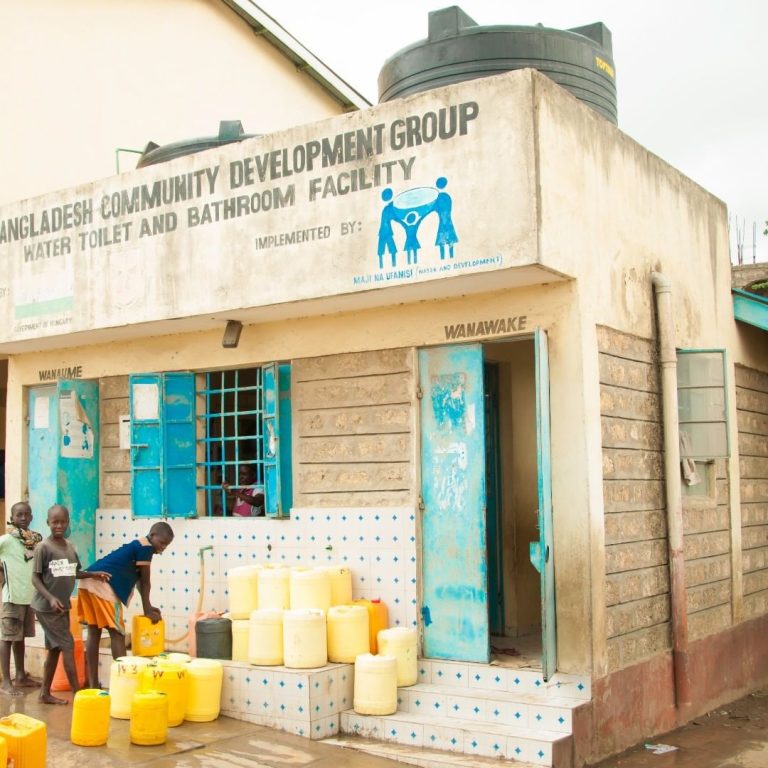Briefly, by 2013, when MnU started its WASH intervention in the Kongowea public market, the situation was simply a nightmare. The market was dirty, with dilapidated water and sanitation facilities. Occurrences of water and vector diseases was very common. Indeed, the stench emanating from these blocked sanitation facilities could be smelt 100 metres away.
 The limited number of toilets also meant that people openly defecated between the stalls despite the very grave health implications. As a result of this dire situation, the County Public Health Department had already indicated its intention to close down Kongowea market on account of the rampant unhygienic practices.
The limited number of toilets also meant that people openly defecated between the stalls despite the very grave health implications. As a result of this dire situation, the County Public Health Department had already indicated its intention to close down Kongowea market on account of the rampant unhygienic practices.
To address this grave situation, using the model, MnU rehabilitated 60 toilets in Kongowea market. Fortunately, the high human traffic in the improved and well managed WASH facilities generates an average revenue of over Ksh 60,000 per day which is more than enough to pay for supplies, maintenance and salaries of the youths who have been employed to work in these WASH facilities.
In May 2015, MnU’s project in Kongowea public market was rated first out of over 900 projects that had been competing for an international award that was given by AMCOW (African Ministers’ Council on Water) and UNICEF. The most notable aspect of the project was its innovative way of transforming former street urchins and “chokoras” into custodians of the rehabilitated WASH facilities. WASHEM Components
A key innovation for WASHEM is that it is youth managed, providing livelihood and sources of income to youth women and persons living with disabilities.
Maji na Ufanisi has proved its innovative but replicable approaches to water services, sanitation and hygiene by implementing a Water and Sanitation Entrepreneurial model; a public private partnership (PPP) with selected county governments which focuses on optimizing the sanitation marketing model and uses a participatory and integrated approach in identifying project sites, participants and direct beneficiaries while ensuring quality services are delivered to the public. The model ensures that those managing these projects are able to improve their socio-economic livelihoods through the financial proceeds generated from the project. The youth and women in particular benefit from this innovative approach as they are hardest hit with unemployment and lack of education.
This model ensures “maintenance free” sanitation infrastructure in public spaces- maintenance free because after capacity building, training and facility rehabilitation, enterprises managed by organized youth and women groups run the facilities cheaply and profitably without needing administrative support or subsidy from the County Government- indeed they are not only able to pay for electricity, water, sewerage and refuse collection fees like any other company- but are meeting all their wage and salary payments, with the surplus money being used for educating and training People living With Disability (PWDs).
This Water and Sanitation model has been used in areas like Bangladesh which is an informal settlement, public markets like Kongowea and Makupa markets, public spaces and public recreation sites like Kongowea, Pirates Beach, Buxton and Likoni bus parks, Makadara, Town hall, Nakumatt, Railways and Mama Ngina all within Mombasa County.
Over 10,000 people have benefited from improved WASH services and 100 women and youth have directly benefited from employment from these public sanitation facilities.
In January 2016, the great success of this model saw the County Government of Mombasa handing over an additional 8 public sanitation facilities. It is due to this success that the County Government of Mombasa in March 2018, approached Maji na Ufanisi to replicate the same model in Kibarani and Kalahari areas.
This model has gained traction within other counties, The County Government of Taita and that of Laikipia have approached Maji na Ufanisi to replicate the model in their counties.
MnU interventions and approach have been recognized by over 30 county governments who have participated in MnU-organized WASH forums. In 2015, MnU was rated the best NGO in Africa by the African Ministers’ Council on Water for successfully implementing a PPP with Mombasa County Government.
The model targets unemployed youth who undergo preliminary training on youth enterprise development and WASH to identify and vet them, they then form a CBO which is duly registered. Thereafter they undergo intensive training and capacity development on group dynamics, project management, financial management(including fostering a culture of saving), book keeping, operations and maintenance, work ethics) to manage WASH services; This model cedes management of the developed WASH facilities to the established and functional CBO consisting of at least 10-30 community members. A reasonable user fee is charged by the CBO for services. MnU provides oversight in the management of the facilities and periodically offers refresher courses for the youth to enhance their skills.
The entrepreneurial model focuses on optimizing the sanitation marketing model and uses a participatory and integrated approach in identifying project sites, participants and beneficiaries. The model ensures that those managing these projects are able to improve their socio-economic livelihoods through the financial proceeds they generate from the project. The youth and women in particular benefit from this innovative approach as they are hardest hit with unemployment and lack of education.



